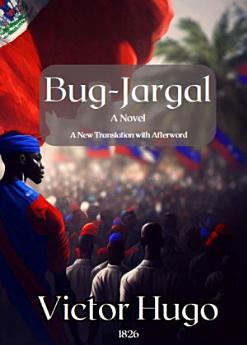Bug-Jargal
About this ebook
First published in 1826 when its author was only in his early twenties, Bug-Jargal began as a short tale crafted by a teenage Victor Hugo. Its original French edition bore the title Bug-Jargal, and it reached English readers in 1833 under the translated name The Slave-King; a later 1845 edition was titled The Noble Rival; or, The Prince of the Congo. Set amid the upheaval of the Haitian Revolution, this early work offers a bold portrayal of interracial friendship and rebellion at a time when such themes were seldom seen in European literature.
The story transports us to 1791 Saint-Domingue (modern Haiti) on the eve of a slave uprising. In the midst of the colony’s violent revolution, a young French officer – Captain Leopold d’Auverney – forges an unlikely bond with an enslaved man of royal lineage known as Bug-Jargal. As rebellion sweeps the land, the fates of the idealistic soldier and the courageous slave leader become tightly intertwined in a saga of loyalty, honor, and shared humanity that transcends the barriers of race and class. Hugo unfolds a landscape of danger and moral complexity: besieged forts and jungle hideouts, daring rescues and tragic misunderstandings threaten to sever the two men’s fragile alliance, even as each comes to recognize the dignity and bravery in the other.
Bug-Jargal holds a unique place in Hugo’s oeuvre as one of the first major European novels to confront the realities of a slave revolt in the New World. Written when Hugo was still a very young man, the novel reveals early glimpses of the grand themes that would later crown his masterpieces. Hugo’s depiction of Bug-Jargal as a heroic, dignified figure signals his early engagement with the ideals of equality and justice – the very ideals that would define works like Les Misérables. Though shorter and more youthful in style than Hugo’s later epics, this novel carries the hallmarks of his genius: vivid characters, dramatic storytelling, and a deep empathy for the oppressed. The Haitian setting, rich with historical significance, is more than just a backdrop; it becomes a crucible in which questions of freedom, colonialism, and moral conviction are tested on an epic scale.
In its blend of adventure and social insight, Bug-Jargal reads like a bridge between a swashbuckling historical romance and a thoughtful exploration of human rights. Modern readers will find it both an exciting tale of peril and rescue and a thought-provoking study of revolution, prejudice, and friendship. As a precursor to Hugo’s later achievements, this novella stands as a fascinating early testament to the universal struggle for freedom and human dignity – a story born of youthful passion that still speaks with a timeless voice.
This critical reader's edition presents a modern translation of the original manuscript, crafted to help the armchair philosopher engage deeply with Victor Hugo's works through clean, contemporary language and streamlined syntax that clarifies his expansive ideas. Supplementary material enriches the text with autobiographical, historical, and linguistic context, including an afterword by the translator on Hugo’s history, impact, and intellectual legacy, an index of the themes and philosophical concepts he employs—emphasizing Romanticism, social justice, and moral idealism—a comprehensive chronological list of his published writings, and a detailed timeline of his life, highlighting the personal relationships (including his relationship with Charles Dickens) and political commitments that shaped his vision.










